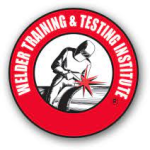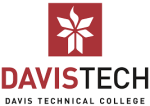Boasting an impressive projected 488,000 job openings in the next five years, a welding career offers excellent job security with plenty of employment opportunities, which continues to grow.
Welders are needed across countless industries ranging from automotive and aerospace to construction, building, and military.
With a welding education, your career isn’t limited only to welding as technical sales, robotics maintenance and repair, welding inspector, manufacturing welding technician, assembler, and specialized welding areas are also possible.
While the median welder salary is $40,000, with so many specialization opportunities, a six-figure income is achievable, especially as a military support, underwater, or industrial pipeline welder.
The first step to starting your welding career is to earn a welding certification or degree from an accredited educational institution.
Keep reading to learn more about the best online welding training programs!
Best Online Welding Training Programs
To be a successful welder, refining existing skills and learning new techniques is necessary.
Since welding is a hands-on trade, only courses can be taken, not entire programs.
Therefore, the following is a mix of in-person programs and schools with individual online courses.
One: AWS Online Welding Seminar
The American Welding Society (AWS) Online Welding Seminar was developed to prepare students for the professional welding certification.
The seminar is only eight weeks long and is the best distance-learning option for budding welders.
It’s important to note that this program isn’t for beginners.
It’s for those familiar with basic welding terminology and processes.
The program comprises several two-hour live online classes, ideal for those who cannot commit to in-person instruction but still want the benefit of an industry professional.
The course also features practice tests and study guides to prepare students for the AWS exam.
Additionally, the seminar cost includes a three-year membership to the AWS, which is excellent for networking and future learning opportunities.
The seminar cost, inclusive of all materials, is $2,660 for members and $2,915 for non-members, and the American Welding Society self-certifies the program.
Two: Davis Applied Technology College
Davis Applied Technology College has an excellent 72% placement rate post-graduation of its Welding Technology program.
Graduates earn an AWS certification, which employers look for in new hires.
The curriculum includes numerous welding types, including gas tungsten arc welding, shielded metal arc welding, flux core arc welding, and gas metal arc welding, which is much more specialized than the other schools on this list.
These options are ideal for those already working in the welding profession or having a welding background.
Three: Hobart Institute of Welding Technology
The Hobard Institute of Welding Technology offers individual classes targeting specific skills ideal for existing welders to maintain certifications.
Although plenty of in-class courses are available for beginners, Hobard doesn’t have entry-level online welding courses.
Instead, the online offerings are limited to welding educators and inspectors.
The school boasts seven classes on identifying defects and assessing welds to maintain quality control.
Each course comprises five 25-minute videos and only cost $89.
Students can select individual courses that pertain to their skills or buy the entire package.
Once a course is complete, the learner must take a final test to acquire a completion certificate and earn credits.
Credits earned from these courses can be applied toward the continuing education AWS recertification requirement.
Given that the credits can be used for AWS recertification, the school is AWS accredited.
Four: Modern Welding School
Boasting three accreditations from the AWS, ASME, and ACCSC, the Modern Welding School offers plenty of benefits upon graduation.
With part-time evening programs and full-time, daytime options, students are educated in various welding types with a schedule that can balance full-time employment and nighttime education.
The full-time day in-class program requires 900 hours, which takes about 30 weeks.
The evening program requires 665 hours and takes approximately 45 weeks to complete.
Regardless of the option, students in both programs graduate with TIG, MIG, pipe welding, structural welding, and welding technique knowledge.
The school also offers workshops for professionals to continue learning beyond the minimum certification.
Five: The Lincoln Electric Welding School
Calling Cleveland, Ohio, its home, the Lincoln Electric Welding School has eight fundamental and advanced welding courses.
This specialty school only offers welding training and prepares students for a successful career in the trade.
Lincoln Electric is one of the largest and most reputable names in welding equipment, so, unsurprisingly, the school is also one of the best.
The instructors are highly qualified and well-trained to teach students basic and advanced welding techniques.
Pupils receive the hands-on training that’s required to learn the entire trade.
Once the program is complete, graduates receive a certificate with the respected Lincoln logo.
This is a fantastic stepping stone to help land some of the best and highest-paying jobs in the industry.
The curriculum covers all necessary information, from fundamental techniques in the Intro to Welding course to advanced techniques like submerged welding.
This comprehensive program prepares you for a long and successful profession as a master welder.
Six: Tulsa Welding School
With locations in Tulsa, Oklahoma, Jacksonville, Florida, and Houston, Texas, the Tulsa Welding School is the largest in the United States.
All three sites offer a seven-month professional welder program with 80% hands-on experience and only one day per week of lectures.
The instructors are seasoned professionals who observe students performing the required welds in a controlled and safe environment.
The school offers flexible schedules to fit education into any busy lifestyle.
The curriculum includes TIG, Flux core and MIG welding, pipe welding, and all other major welding types.
The Houston campus offers a Welding Specialist program focusing more on specialized welding.
Regardless of the educational path, you will receive an AWS certification, proving to future employers that you have extensive knowledge and took the time to earn the most respected certification in the industry.
Seven: Welder Training and Testing Institute
Located in Allentown, PA, the AWS and ACCSC accredit the Welder Training and Testing Institute, so you know the education is top-notch.
The school’s Welder Fitter course is their main career-level program that requires 900 hours to graduate.
This is the ideal option for beginner welders to learn the foundations of the trade.
Another popular option is the Combination Welding program, which requires 740 hours and doesn’t include certain classes like pipe fitting and blueprint reading, so it takes slightly less time to graduate.
The Welder Training and Testing Institute also offers advanced welding technique classes for existing welders to learn new concepts and specializations.
All courses are provided in class only.
Eight: Wichita Area Technical College
Located in Wichita, Kansas, the Wichita Area Technical College offers a Technical Certificate or Associate of Applied Science in welding and a Welding Fast Track program, which requires 19 credit hours.
The certificate program requires 46 credit hours, while the associate degree demands 62 credit hours.
The Welding Fast Track program can be completed in a few weeks, the Certificate requires several months, and the associate degree takes around two years to complete.
The more time a course requires, the more comprehensive the material, which is beneficial when searching for a job.
An associate degree makes you more marketable than a Certificate since you have gained more knowledge due to longer course requirements.
The Higher Learning Commission accredits WSUT, and the welding programs hold the AWS accreditation, which graduates earn upon course completion of any options.
Nine: Udemy
Udemy is an online database that offers many classes across countless disciplines, including welding.
For $20, the Udemy Welding Technology Certification course is an excellent introduction to those who want a foundation in welding.
With other classes costing thousands of dollars, paying $20 for an introductory course to learn more about the profession is a steal.
It’s important to note that this class is not accredited and does not apply to an AWS certification.
The course length is 3.5 hours of video and covers types of welding joints, non-consumable and consumable welding methods, and the history of welding.
Past knowledge and prerequisites are not required, and this is a self-paced online course to work around your schedule.
One of the greatest benefits of Udemy is the ability to look at class ratings and reviews to determine the best option to meet your educational goals.
What Courses Are in an Online Welding Program?
Depending on your educational path, online welding programs can vary greatly from foundational courses to specializations, including the following:
Foundational Welding
- Basics of welding and joining technologies
- Blueprint reading
- Destructive testing methods
- Fumes and gasses
- OSHA for workers
- Personal protective equipment for construction
- Shielded metal arc welding
- Understanding welding symbols
- Welding safety
- Welding types
These foundational courses are meant for beginners with no welding experience.
These classes give students the basic knowledge to graduate and earn a certificate, which provides employers with faith that their new hire can learn and has achieved an industry standard.
Specialization
- Construction welding
- Industrial maintenance
- Manufacturing welding
- Pipefitting
- Rig welding
- Sheet metal welding
- Shipyard welding
- Structural steel welding
- Submerged welding
- Tube welding
Each specialization program usually includes several of the above since industries overlap significantly.
For instance, a specialized course may include manufacturing and industrial maintenance topics, whereas a shipyard class could feature submerged and sheet metal welding.
Most specialized courses and programs are for those with welding experience or who have completed a foundational welding program and want to focus on different areas.
Can You Earn a Welding Certification Completely Online?
While most comprehensive welding programs offer in-person training, some schools have online welding courses that give students the skills and knowledge necessary to pass the AWS certification test.
Since this is such a hands-on work environment, having in-person training is preferred but may only be achievable for some student types and situations.
Therefore, the separate online-only or hybrid educational options help cater to aspiring welders who may only sometimes be available for in-person learning.
How Much Does an Online Welding Certification Cost?
Online welding class prices vary depending on the accreditation and length.
Typically, entire online programs cost between $2,000 and $3,000 for a two-to-eight-week intensive course but are as inexpensive as $20 for a 3.5-hour class.
Also, online courses are more affordable than in-person courses, starting at $5,000 for a three-to-12-month requirement and over $15,000 for over one year.
However, the longer the class, the more comprehensive knowledge you receive.
Finding the right educational path to meet your career goals is essential.
It’s important to note that those taking online welding classes will still likely need hands-on instruction to earn certification, which must be factored into the overall cost.
Summary
Welding is an incredibly specialized skill that combines art and science with precision.
As a result, becoming a welder is more complex than picking up tools and fusing two objects.
Instead, it requires training to learn the different welding types, specializations, tips, and techniques for success.
While plenty of welding schools exist around the U.S., only a few offer online or hybrid programs due to the hands-on nature of the profession.
Several of the top online welding schools in the American Welding Society offer the highly regarded AWS certification, the Hobard Institute of Welding Technology, which is best for continuing education, and Udemy, which is ideal for individual courses.
The others on this list are some of the top in-person programs that combine lectures with plenty of firsthand welding projects.
These include Davis Applied Technology College, Modern Welding School, The Lincoln Electric Welding School, Tulsa Welding School, Welder Training and Testing Institute, and Wichita Area Technical College.
Although only a few online welding programs exist, schools are finding new and creative ways to use technology for more hands-on programs or a hybrid of online and firsthand experience at a local school or shop.
The demand for skilled welders continues to grow as the world expands and progresses in construction, industry, and commerce.
For those undecided about whether to enter the profession, if you enjoy working with your hands in an ever-changing environment, and the thought of sitting in front of a computer screen all day makes you sick, welding is an excellent career choice!








